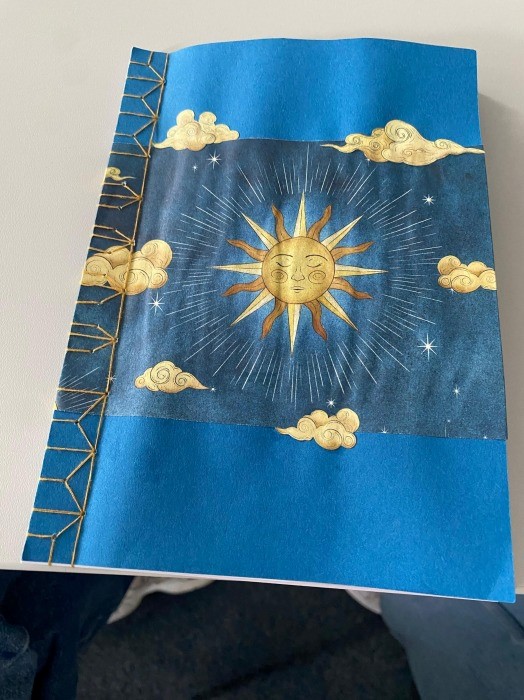


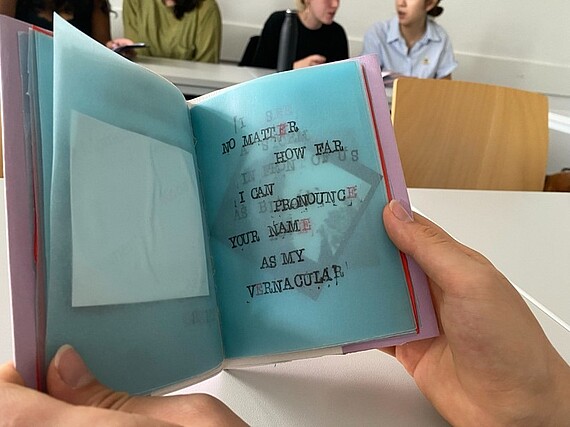
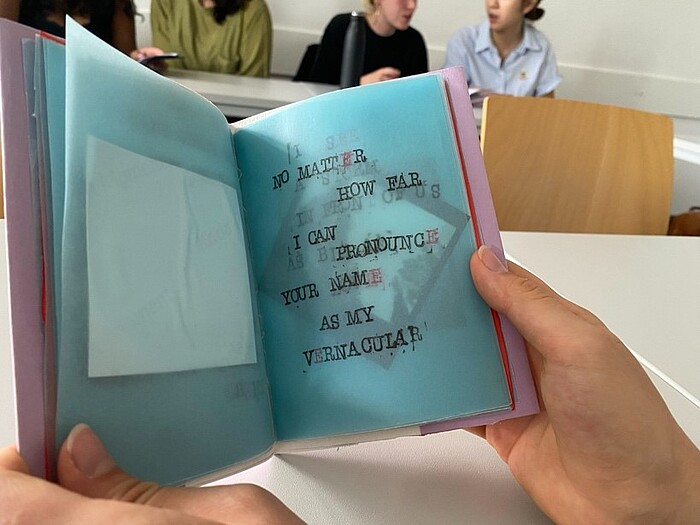
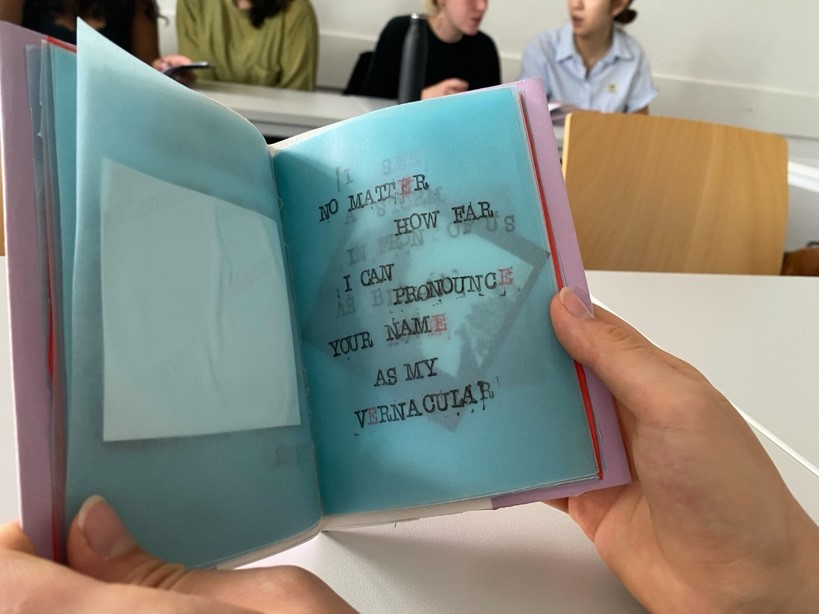
You wake up, clean your face, look in the mirror, get dressed, phone in one hand, coffee in the other, and your day unfolds. You drift through social media, absorb the news, carry the miseries of humanity with you. You delve into a book, attend a seminar, and engage in diverse conversations with loved ones, friends, or everyday strangers. Your past haunts you and a multitude of external and internal stimuli stir emotions within you. Emotions, thoughts, more emotions, then thoughts again, silence, a sense of being overwhelmed, or perhaps a moment of mindfulness: You are bearing a fruit of your own. It would then be necessary to bring the absorption of these emotions and ideas into a form. In this way one can develop a self-awareness of how life works as a whole, how one deals with emotions and how all this leads to an appreciation and recognition of life. Poetry is one such form, one that gives access to a reflective feedback – an artistic tool that can help to coordinate and navigate the everyday, language, and its functions, to make sense of our feelings and ideas.
In celebration of a genre that stands on its own and lends its stimulation to our daily lives, a poetry workshop was held by Abigail Fagan in the 2023 summer term. The aim was to create a generative and friendly critical climate through the sharing and discussion of poetry, a working knowledge of poetic terms and genres, and an informal database of methods and places for publishing poetry – including in the form of homemade chapbooks. Each meeting of the course had three activities: a discussion of poems that provided models or guidelines for our own writing; time to respond to a writing prompt; and a workshop on poems written by the students. The final meetings of the semester were devoted to bringing a selection of poems written during the semester into some kind of material form. In the final session, poets from Abby Fagan’s seminar presented their work to students from Ilka Brasch’s seminar “Form, Materiality, Archive,” taught in the same semester. This encounter across disciplines allowed for a rich exchange of ideas. In addition to sharing their poems, the poets presented their chapbooks, which varied in color, binding, and design. Participants discussed how these physical attributes affected the reading experience. This interaction sparked insightful dialogues about the interplay between form and content, underscoring the notion that the physicality of a book can significantly enhance or alter its meaning. The workshop emphasized poetry as a collective, reflective activity, combining the acts of reading and writing with an appreciation of the material aspects of publication.
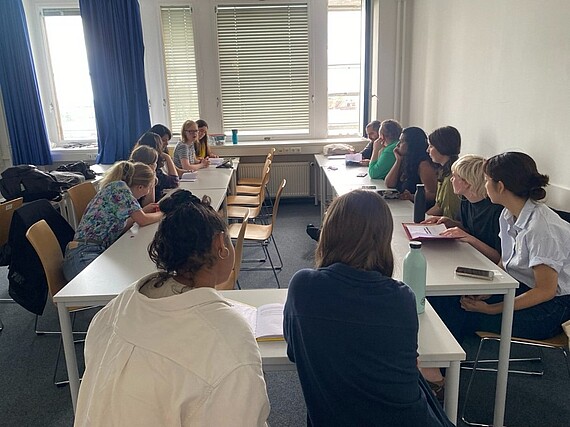
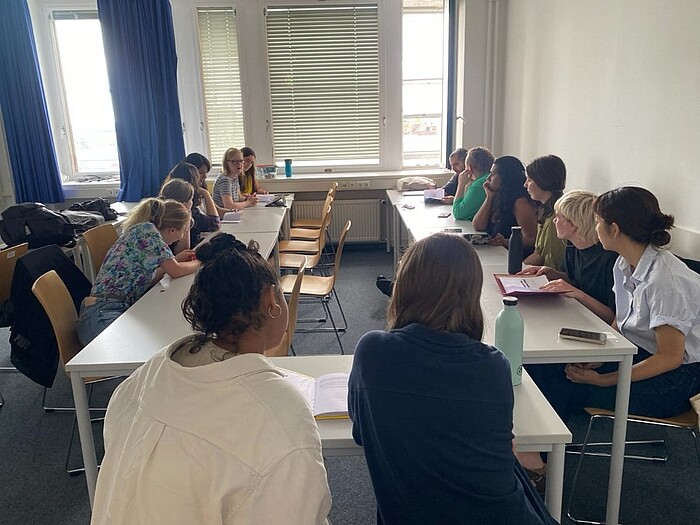

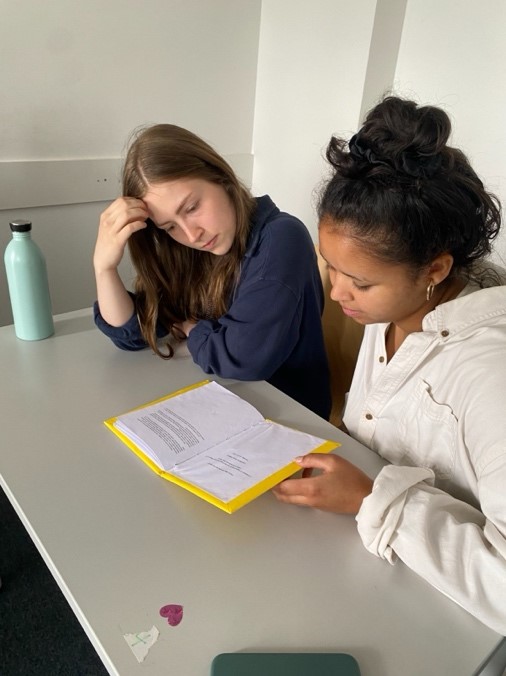


Some of the poetry produced in the context of Abigail Fagan’s “Poetry Workshop” seminar is now collected in this issue. There are nine poems with a wide range of topics which are presented in the following order: “Shiraz is in the Heart” by Shayan Rahmanian Koushkaki, followed by a second poem by the same poet “trilingual,” “the bare minimum” by Lena Schroeder and “Words, Inherited I and II” by Charlie Geitlinger. Sarah Willeford also published two poems, namely “The Quilt,” followed by “13 ways of looking at an Altoids Tin.” And lastly, “Bathroom Prayers” by Aenne Dirks, “Pleasure in Pain” by Nientke Peters, and “On the Bar” by Mandana Vahebi conclude all nine poems in this issue.
Author Biography
Mandana Vahebi is currently pursuing a Master’s degree in the division of North American Studies at Leibniz University Hannover. She holds a Bachelor’s degree in English Language and Literature from Arak University, Iran. Her academic interests span a wide range of fields, including cultural studies, transnationalism, poetics, affect studies, and media, film, and communication. In her current role as associate editor at the In Progress journal at Leibniz University Hannover, Mandana has applied her specialized skills in video essay creation to supply compelling and informative video content in the journal’s latest issue.
Copyright (c) 2024 Mandana Vahebi.
This work is licensed under a Creative Commons Attribution 4.0 International License.


